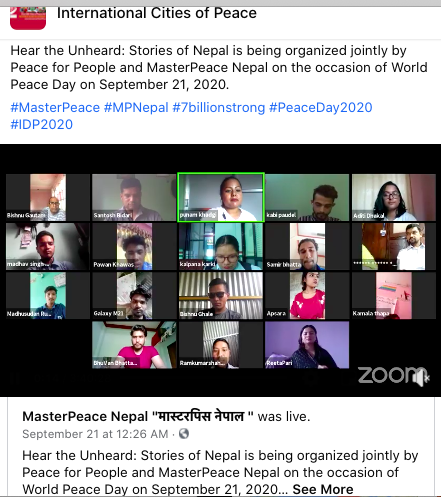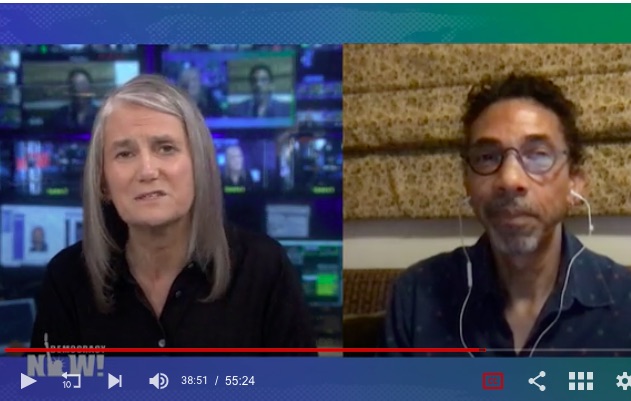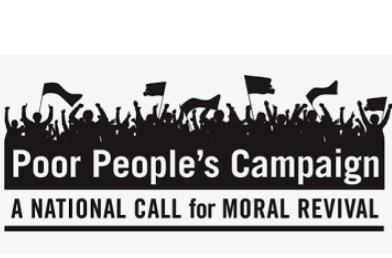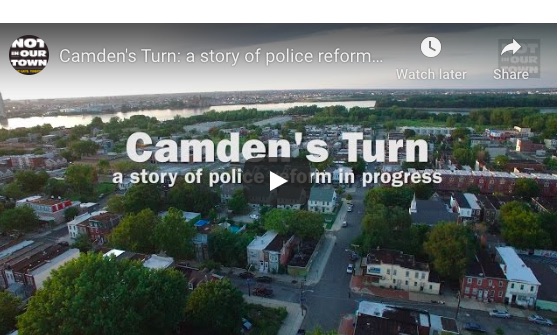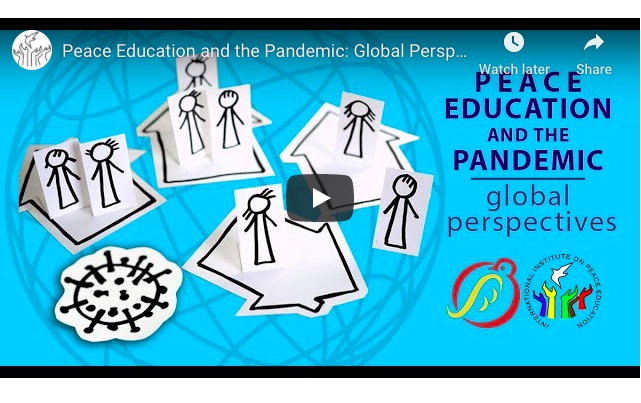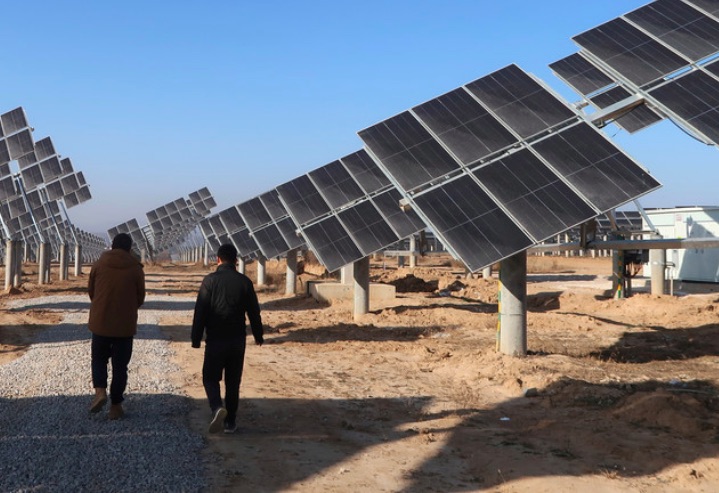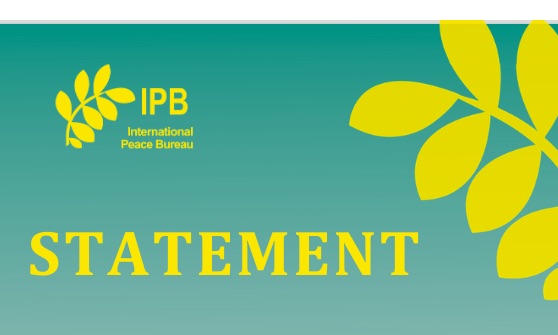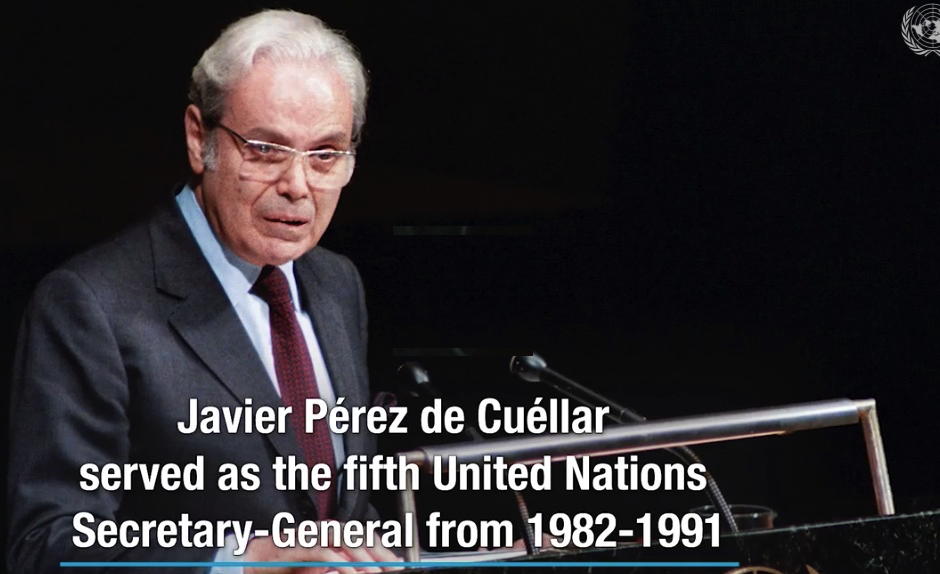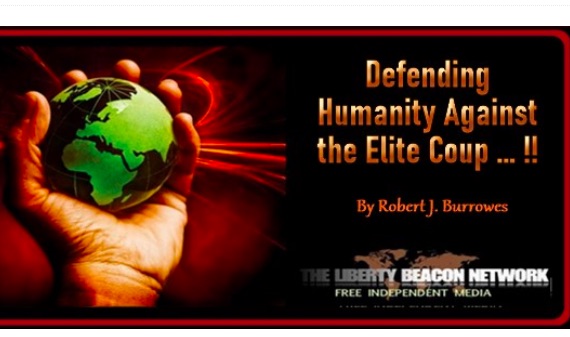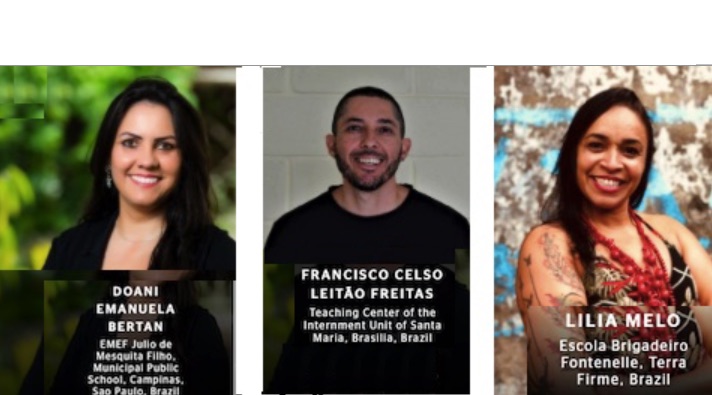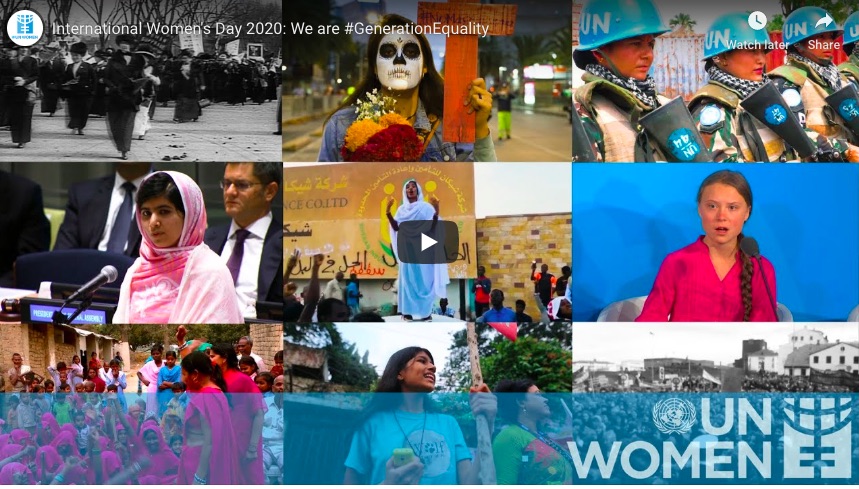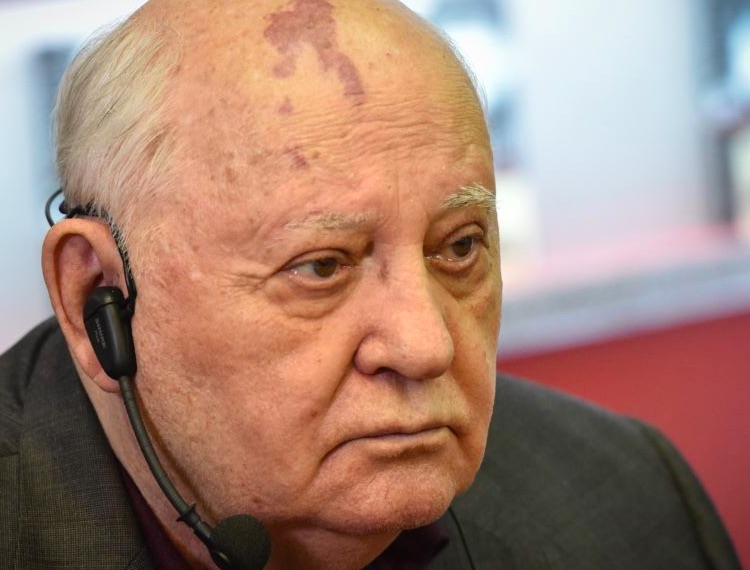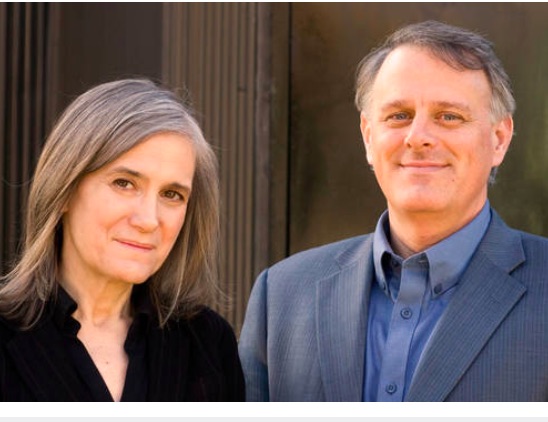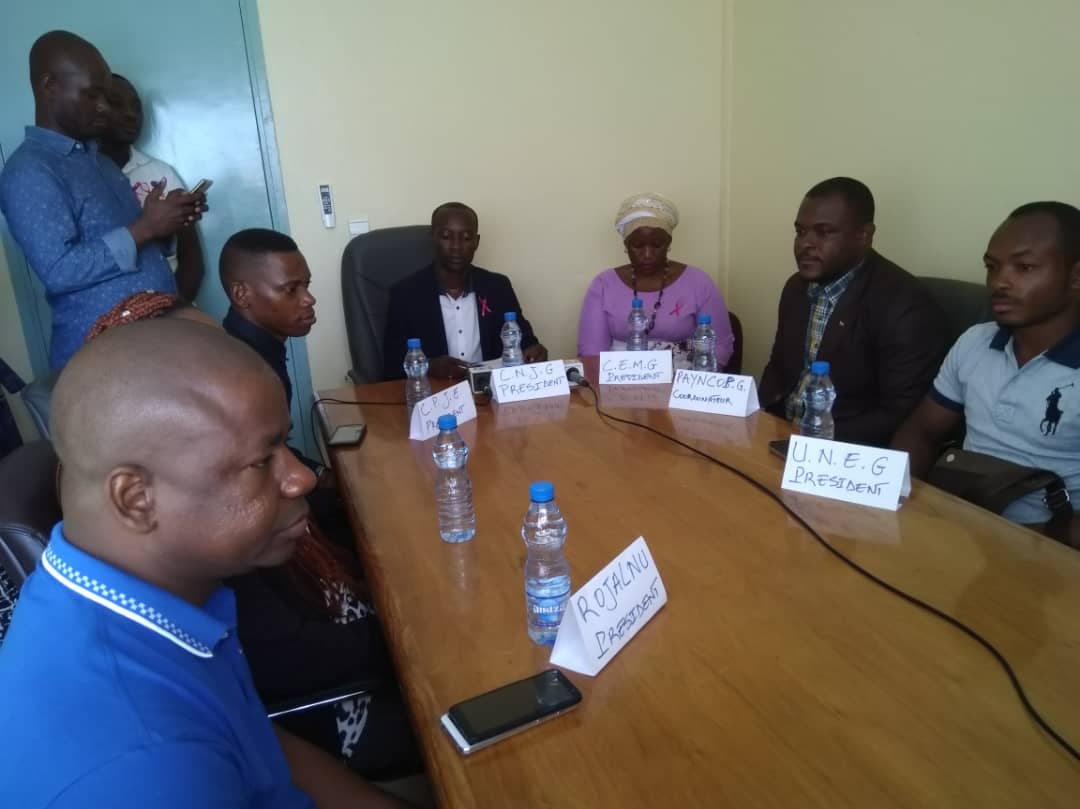Category Archives: Uncategorized
YEMEN
Poster from Nigeria
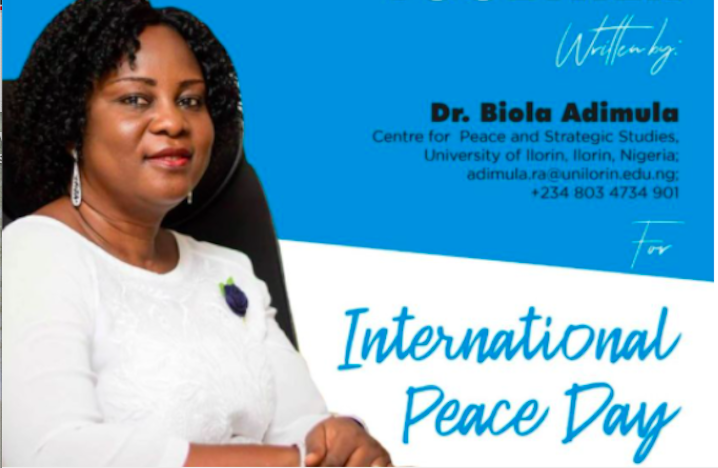
The detailed pages for the International Day of Peace 2020 will be put on line during the week of October 1-7
Please excuse the delay!
The growing use of weaponised drones risks destabilising global peace and security
DISARMAMENT & SECURITY .
An article from UN News
The growing use of weaponised drones risks destabilising global peace and security and creating a “drone power club” among nations, that face no effective accountability for deploying them as part of their “war on terror”, a senior UN-appointed independent rights expert said on Thursday.

At the UN Human Rights Council in Geneva, Agnes Callamard, Special Rapporteur on extrajudicial, summary or arbitrary executions, said that more than 100 countries have military drones and more than a third are thought to possess the largest and deadliest autonomous weapons.
‘No red lines’ in drone warfare?
States who used them on the grounds of self-defence, “defined in a very elastic fashion” against purported terrorists, risked creating a situation where “there will be no red lines really”, she told journalists later.
“As more Government and non-State actors acquire armed drones and use them for targeted killing, there is a clear danger that war will come to be seen as normal rather than the opposite of peace,” Ms. Callamard said. “War is at risk of being normalized as a necessary companion to peace, and not its opposite.”
Appealing for greater regulation of the weapons, and lending her support to calls for a UN-led forum to discuss the deployment of drones specifically, the Special Rapporteur insisted that their growing use increased the danger of a “global conflagration”.
(Article continued in right column)
Drones (unmanned bombers), Should they be outlawed?
(Article continued from left column)
‘Influential States’ rewriting the rules
Such a move was necessary because “a small number of rather influential States” had sought to reinterpret the law of self-defence under Article 51 of the UN Charter, she explained.
She urged UN Security Council to meet in formal session to review and debate all such self-defence claim, before recommending that the High Commissioner for Human Rights should produce an annual report on drone strikes casualties for the Human Rights Council.
There was now the “very real prospect that States may opt to ‘strategically’ eliminate high-ranking military officials outside the context of a ‘known’ war”, she explained, and that they might seek to justify the killing “on the grounds of necessity – not imminence” as the target was classified as a “terrorist who posed a potential, undefined, future threat”.
Iranian general’s chilling death
In particular, she cited the killing by drone strike in Iraq of Iranian General Qassem Soleimani on 3 January for which the United States claimed responsibility and which she insisted was a violation of the UN Charter.
“Targeted killings until very recently to drones had been limited to non-state actors,” she told journalists. Until, for the first time in January 2020, a State armed drone targeted a high-level official of a foreign State and did so on the territory of a third State.”
Drone strikes were the preferred option for “decision makers and military alike for their relative efficiency, effectiveness, adaptability, acceptability, deniability, and political gain”, the rights expert maintained.
But she noted that their benefits were as “illusory” as the “myth of a surgical strike”.
Because of the current absence of effective oversight, it was “practically impossible to know whether a person(s) killed in a drone strike was, in fact, a lawful target”, Ms. Callamard said, adding that harm to civilian populations, including deaths, injuries and trauma, was likely largely under-reported.
(Thank you to Phyllis Kotite, the CPNN reporter for this article.)
English bulletin July 1, 2020
This was a month of the reactivated struggle against racism.
It started in the United States with an uprising described as a “collective gasp for life” by the Poor People’s Campaign which continues the struggle for justice led by Martin Luther KIng, Jr. Their phrase refers to the last words of George Floyd,” choked and killed by a white police officer “viscerally reminiscent of the lynching photographs that were used to terrorize African-Americans for decades in this nation.”
Excessive force by the police, condemned by fundamental international human rights law and standards, is commonplace in the United States according to a recent study.
As described by Reuters, “tens of thousands of demonstrators amassed in Washington and other U.S. cities on Saturday [June 6] demanding an end to racism and brutality by law enforcement.” ““It feels like I get to be a part of history and a part of the group of people who are trying to change the world for everyone,” said one of the demonstrators.
Thousands took to the streets in Europeen and Asian cities demonstrating in support of the U.S. protests against police brutality, including London, Hamburg, Paris, Berlin, Brisbane, Sydney, Tokyo, Seoul and Bangkok,
The demonstrations in Australia linked the protest to the racist treatment of the aboriginal people in their country, where 432 aboriginals have died in police custody since 1991 without a single conviction. The racism is especially evident in the destruction of Aboriginal heritage sites for development projects. “The NSW Office of the Environment and Heritage shows that between June 2012 and June 2013 there were over 99 applications for the destruction of Aboriginal heritage sites for development purposes – all of which were approved.”
Central to the demonstrations has been the movement of Black Lives Matter, started in 2013 by three radical Black organizers — Alicia Garza, Patrisse Cullors, and Opal Tometi — in response to the acquittal of the murderer of 17 year old Trayvon Martin. Their project is now a member-led global network of more than 40 chapters that organize and build local power to intervene in violence inflicted on Black communities by the state and vigilantes.
As described by historian Robiin D. G. Kelley, in addition to Black Lives Matter, there have been many organizing efforts that have built a base for today’s protests. “These include people like Melina Abdullah, Charlene Carruthers of Black Youth Project 100, all the scholar activists who have been working on this question — Barbara Ransby, Kimberlé Crenshaw, Angela Davis, Ruth Wilson Gilmore — and then, before that, the Malcolm X Grassroots Movement, Copwatch, Dignity and Power, Critical Resistance, the African American Policy Forum. These were initiatives on the ground who did all this political education, all this organizing work — We Charge Genocide, Dream Defenders, the Rising Majority, Black Organizing for Leadership and Dignity, and also groups like SURJ, you know, [Showing] Up for Racial Justice, which deals with white racism.
Kelly concludes his interview with “And the real question now is whether or not this can be sustained.”
One of the means to sustain the movement is the mobilization in many U.S. communities and organizations to celebrate Juneteenth, the anniversary of the Emancipation Proclamation of Abraham Lincoln to put an end to slavery. It is now recognized in 47 states and the District of Columbia.
In the view of noted activist Cornel West , it is important to make the connection between U.S. violence abroad and at home. “When you sow the seeds of greed — domestically, inequality; globally, imperial tentacles, 800 military units abroad, violence and AFRICOM in Africa, supporting various regimes, dictatorial ones in Asia and so forth — there is a connection between the seeds that you sow of violence externally and internally.”
For more on the connection of racism to the culture of war, externally and internally, along with its historical roots, see this month’s blog for the culture of peace.
|
HUMAN RIGHTS |
FREE FLOW OF INFORMATION |
SUSTAINABLE DEVELOPMENT |
DEMOCRATIC PARTICIPATION |
|
EDUCATION FOR PEACE |
WOMEN’S EQUALITY |
TOLERANCE & SOLIDARITY |
DISARMAMENT & SECURITY |
English bulletin May 1, 2020
In the month since we wrote in our bulletin that “the medical and economic crisis associated with the coronavirus can be seen as an opportunity as well as a calamity,” many analysts have taken this position and proposed how we can move forward. This includes proposals regarding all aspects of the culture of peace:
Disarmament and Security: Three former Royal Navy Commaders of the United Kingdom sent a letter to parliament saying that the 2 billion pounds a year spent on nuclear submarines cannot be justified and the money should be used for health care. The activist David Swanson in the United States proposes that the American Department of Defense should be converted from military operations and should work for universal financial and medical security. Reacting to the latest American threat of war, that against Venezuela, it is said that “the US should fight COVID, not Venezuela” and that “President Trump has no business deploying US military assets threatening Venezuela.”
Readers will recall that last month we published similar calls from the International Peace Bureau and the Peace Pledge Union to convert military budgets to money for health care, and the call by UN Secretary-General for a global ceasefire.
Solidarity: Around the world, people have responded to the crisis with actions of local solidarity to care for those who are vulnerable to the pandemic. A good example comes to us from the youth of Gabon who are providing water stations for the people living in poor areas. As expressed by the organization Tamara, in Portugal “the crisis represents a great opportunity, in addition to all its challenges: now, we have the opportunity to join forces worldwide to achieve a shared goal, develop social cohesion, set up decentralized structures, a solidarity economy – a genuine reboot”
Democratic participation: The Moroccan professor Abdelmoughit Benmassoud Tredano states that the economic crisis has only just begun. He repeats the call for solidarity: “at the individual, group and national level, individualism is outdated and solidarity is needed instead.” “This certainly implies rethinking the organization of the world on all levels . . . the organization of the world by regional groups must be adopted because no single state can stand alone, unless it is an entire continent.” According to the Council of Europe, Iin many countries, the lead is being taken by cities rather than the state. They provide the example of Raseborg in Finland.
Women’s equality: Nazra Feminist Studies of Egypt proposes that we adopt the feminist values “such as joining forces in times of fear, loss and build, collective responsibility and action towards our survival, international cooperation and collectiveness in order to understand and identify ways to overcome this crisis.”
In the short term sustainable development has been set back by the pandemic, but according to the World Economic Forum, “now is the time to start redirecting the $5.2 trillion spent on fossil-fuel subsidies every year toward green infrastructure, reforestation, and investments in a more circular, shared, regenerative, low-carbon economy.”
Education for peace: In a recent webinar by he International Institute on Peace Education and Global Campaign for Peace Education, educators from the USA, Austria, Puerto Rico, South Africa, China, Nigeria, Philippines, Mexico, Colombia, Argentina and South Korea shared how they are responding to the pandemic and associated systemic violence and injustices.
“How human rights can help protect us from COVID-19″ is the title of an article from Amnesty International, stressing the need to protect the human rights to health, access to information, employment, housing, water, sanitation and freedom from discrimination.
Free flow of information. According to the United Nations Conference on Trade and Development, the global crisis has pushed us further into a digital world. There has been a leap in teleworking and online conferencing, but only 20% of the population in the least developed countries use the internet, so the world needs a coordinated multilateral response to deal with the challenge of digitalization.
Of course, the eight aspects of the culture of peace are all inter-related and need to be addressed in coordination. This is seen in the following analyses.
Mazin Qumsiyeh sends us a global call from Palestine Action for the Planet which calls for democratization of the United Nations, reorganization of development priorities, drastic reduction in military spending, defense of democratic participation, global solidarity and restoration of ecological balance (“We humans must recognize ourselves as part of nature and live in harmony with it”).
William Astore, a retired lieutenant colonel (USAF) and professor of history, gives us seven suggestions “to change America” [and, we may add, “to change the world”]. The first is to reduce military spending and the next two are to reduce the 800 US military bases around the world and to abandon the plan for waging two major foreign wars at the same time. He calls for a Works Progress Administration to rebuild America’s infrastructure and reinvigorate our culture (like that of President Roosevelt during the depression). He calls for “an end to fear-mongering and warmongering, and to recognize as true heros not warriors and sports stars, but rather those who are on the frontlines against the coronavirus. And “finally, we must extend our love to encompass nature, our planet.”
Nobel Peace Laureat Mairead Maguire reminds us that “If this virus has done anything, it has reminded us that we are only human and very vulnerable; we need each other to survive and thrive. If anything, this virus hopefully will cement the opinion that we are All One, brothers and sisters; what affects one affects all. . . . Government policies of sanctions, militarism, nuclear weapons and war must be radically replaced by government policies that put their citizen’s health – both physical and mental – on top of the political agenda. . . . Capitalism does not work, the system is broken, and we are all challenged to build a system of real democracy that works for everyone.
Another Nobel Peace Laureate, Mikhail Gorbachev, calls for a “radical rethinking of international politics . . . Is it not clear by now that wars and the arms race cannot solve today’s global problems? War is a defeat, a failure of politics! . . . We need to demilitarize world affairs, international politics and political thinking and reallocate funds from military purposes to the purposes serving human security. We need to rethink the very concept of security. Above all else, security should mean providing food, water, which is already in short supply, a clean environment and, as top priority, caring for people’s health.”
Finally, here at CPNN, we are providing additional tools and proposals in our blog to chart the way forward, to take advantage of the crisis to reform the world’s governance structure and make the transition from the culture of war to a culture of peace.
|
WOMEN’S EQUALITY |
FREE FLOW OF INFORMATION |
HUMAN RIGHTS |
DEMOCRATIC PARTICIPATION |
|
EDUCATION FOR PEACE |
SUSTAINABLE DEVELOPMENT |
TOLERANCE & SOLIDARITY |
DISARMAMENT & SECURITY |
English bulletin April 1, 2020
Viewed from the perspective of the culture of peace, the medical and economic crisis associated with the coronavirus can be seen as an opportunity as well as a calamity.
As discussed in the blog Has the crash arrived?, it may provide us with the opportunity to make the transition from the culture of war to a culture of peace? The scenario was foreseen In the novella I have seen the promised land written in 2008 which foresaw a global economic crash in the year 2020, opening the possibility for this radical transformation.
Recent articles in CPNN point out how we can overcome the crisis together by working in the various domains of the culture of peace.
DISARMAMENT. The International Peace Bureau has issued a statement demanding world leaders to put disarmament and peace back in the center of policy making. “Without it, we are handicapping our fight against future health pandemics, to eradicate poverty, hunger, to provide education and healthcare for all, as well as the realization of the SDG 2030 goals.”
Similarly the organization Peace Pledge Union says “In this crisis, everyone needs support from others, some especially so. This costs money. The government can still divert funds away from multi-million pound weapons and NATO training exercises. Let’s fund things that will really help to make us safe. You can’t nuke a virus.”
UN General Antonio Guterres has called for ceasefires in the wars that are raging around the world, saying “The fury of the virus illustrates the folly of war. . . . It is time to put armed conflict on lockdown and focus together on the true fight of our lives.”
SOLIDARITY. In this time of suffering and fear, we can learn from the wisdom of indigenous peoples as described in the article coming from the Mixe people of Mexico, a people who have known the ravages of epidemics ever since they were brought to the Americas from Europe. “The communal care that saved the life of [my grandmother Luisa] made it possible that I can today share the dying words of my great-grandfather during a previous epidemic: the individual good is the collective good.
Cuba has shown us a good example of solidarity in the face of the global pandemic. “The same humanitarian and internationalist spirit that led Cuba to allow the [infected cruise ship] Braemar to dock has also led the tiny country to send doctors to assist Haiti after that nation’s devastating 2010 earthquake, fight Ebola in West Africa in 2014, and, most recently, help Italy’s overwhelmed health system amid the coronavirus pandemic.”
EQUALITY OF WOMEN. The women of Mexico are giving us a good example of solidarity which can serve as a model for future mobilizations. Echoing the cry, ‘A day without us’, millions of Mexicans participated March 9 in a National Women’s strike sparked by the wave of outrage over femicides and expanded to a long list of demands of the feminist agenda. The strike was organized to follow by one day the annual mobilization for International Women’s Day which was celebrated around the world.
DEMOCRATIC PARTICIPATION. As emphasized in the statement of the International Peace Bureau, “We know from the history of our own organization and many of our member organizations that in such crises, democracy must be defended above all else, and it must be defended against increasingly authoritarian states.”. During the last great depression, in the 1930’s, democracy was replaced by dictatorships in Germany, Italy and Spain, leading to civil wars and the Second World War. How can this be avoided? Robert J. Burrows, specialist in nonviolent action, provides us with a nonviolent strategy including a list of specific strategic goals “to defend humanity against a political/military coup conducted by the global elite.”
The director of Pace e Bene, a peace organization familiar to CPNN readers because of their extensive mobilizations around the International Day of Peace, tells us that the COVID-19 is a messenger calling us resolutely to join a “planetary movement that is emerging.” The greatest social movement in human history is coming. Each of us is called to join it. It is a global movement, a movement of movements. It is learning from the history of movements that has been accelerating over the past century. It is rooted in the blood and tears of millions who have spent their lives throughout history clamoring for justice, working for peace, laboring for a world that works for everyone. This movement will not appear by magic. It requires hard work and “acting our way into thinking.” It will be deeply nonviolent—saying No to injustice and Yes to the humanity of all, including the humanity of our opponents.
Yes, it depends on our actions now to determine whether the crisis becomes an opportunity or a disaster. CPNN will continue to publish news of these actions as they develop. Readers are encouraged to please send us reports.
|
DISARMAMENT & SECURITY |
FREE FLOW OF INFORMATION |
HUMAN RIGHTS |
DEMOCRATIC PARTICIPATION |
|
EDUCATION FOR PEACE |
SUSTAINABLE DEVELOPMENT |
TOLERANCE & SOLIDARITY |
WOMEN’S EQUALITY |
How can we work together to overcome this medical and economic crisis?

The news media are flooded with articles about the negative effects around the world of the COVID-19 virus.
Less evident in the flood of news are the warnings of the economic crisis that has been unleashed.
In the regard, here is a brief quotation from an article March 28, 2020 in Forbes Magazine, which is a journal designed to be read by the capitalist class. It is entitled “Donald Trump And The Fed Are Destroying The U.S. Dollar”.
“Potential risks of the combined cross-party rescue bill and Fed’s biggest-ever bazooka include out-of-control inflation, the dollar’s displacement as the world’s funding currency, and the complete destabilization of the U.S. financial system. The Fed pumped over $1 trillion to the system in recent weeks, with its chair Jerome Powell promising never before seen levels of money printing and so-called quantitative easing to infinity through an unlimited bond-buying program.”
An economic crash can be seen as an opportunity as well as a calamity, as described in the blogs Has the crash arrived? and A new chapter in the history of the culture of peace.
Latin American Congress of Research for Peace will be held virtually in August
PAYNCoP Gabon : Celebrating International Volunteer Day
Gabon: Payncop and Unesco in Support of People Living with Disabilities
30,000 back US campaign seeking Nobel for Cuban doctors
United Nations: ‘Women Rise for All’ to shape leadership in pandemic response and recovery
Feeding the people in times of Pandemic: The Food Sovereignty Approach in Nicaragua
“Listening as governance”, by Amartya Sen
Philippines: Women’s leadership in the time of pandemic
Leading by Example: Cuba in the Covid-19 Pandemic
International Fellowship of Reonciliation: Open letter to the United Nations
Navajo Nation: Seeds of Hope during the COVID-19 Pandemic
Agroecology: The Real Deal For Climate Crisis In Africa
North Africa: The Corona pandemic and the Struggle for our Peoples’ Resources and Food Sovereignty
Amnesty International: Ignored by COVID-19 responses, refugees face starvation
Work: Democratize, Decommodify, Remediate
Spain: Movimiento por la Paz launches an online course with «five paths for peace»
PAYNCoP Gabon Works with UNESCO to Combat Covid19 Fake News and Violence Against Women
Earth Day Communiqué – 22nd April 2020 Making Peace with the Earth
USA: How Detroit’s farms and gardens are adapting to the COVID-19 crisis
Grow your own: Urban farming flourishes in coronavirus lockdowns
United Nations: Debt-laden countries at risk, as financial markets screech to a halt
Could COVID-19 give rise to a greener global future?
Peace Education and the Pandemic: Global Perspectives (video now available)
Nobel Laureate Mairead Maguire: Do Not Be Afraid…. All Will Be Well…
Intercultural Cities: Raseborg, Finland, testing solutions to Covid crisis
A global call from Palestine Action for the Planet
Covid-19: A new organization of the world is essential (Moroccan university professor)
Gorbachev: Time to Revise the Entire Global Agenda
Coronavirus as a Chance for System Change: 5 Suggestions from Tamera
USA: A Department of Actual Defense in a Time of Coronavirus
Former UK Royal Navy Commanders call for nuclear cuts to help address Covid-19 pandemic
PAYNCoP Gabon and Engineers Without Borders join forces to fight COVID 19
Cuba’s Coronavirus Response Is Putting Other Countries to Shame
Love and Nonviolence in the Time of Coronavirus
Mexico: Jëën pä’äm, the illness of fire
Defending Humanity Against the Elite Coup
IPB Statement: Call to the G20 to Invest in Healthcare Instead of Militarization
UN Secretary-General calls for global ceasefire
Coronavirus: Ministers urged to divert military spending to tackle pandemic
Articles from 2019
Click on the numbered pages below to see all.
For articles from other years, click 2024 or 2023 or 2022 or 2021 or 2020 or 2018 or 2017 or 2016 or 2015 or prior to 2015.
For English articles by category or region, click Read on the menu above.
THE POPE AND CULTURE OF PEACE
PRIZES FOR PEACE
INTERNATIONAL DAY OF PEACE
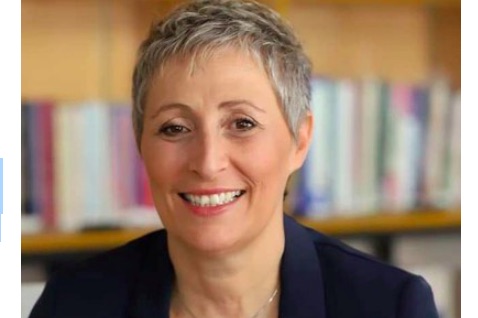
Cyprus: Salpy Eskidjian Weiderud: “Work for a world that’s a better place”
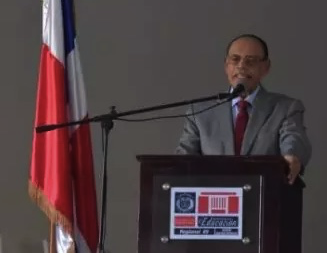
Dominican Republic: Education ministry continues training on ethics, culture of peace and protection of rights

Gambia: Banjul Regional Forum 2019: Engaging Young African Leaders to Achieve the 2030 and 2063 Agendas

